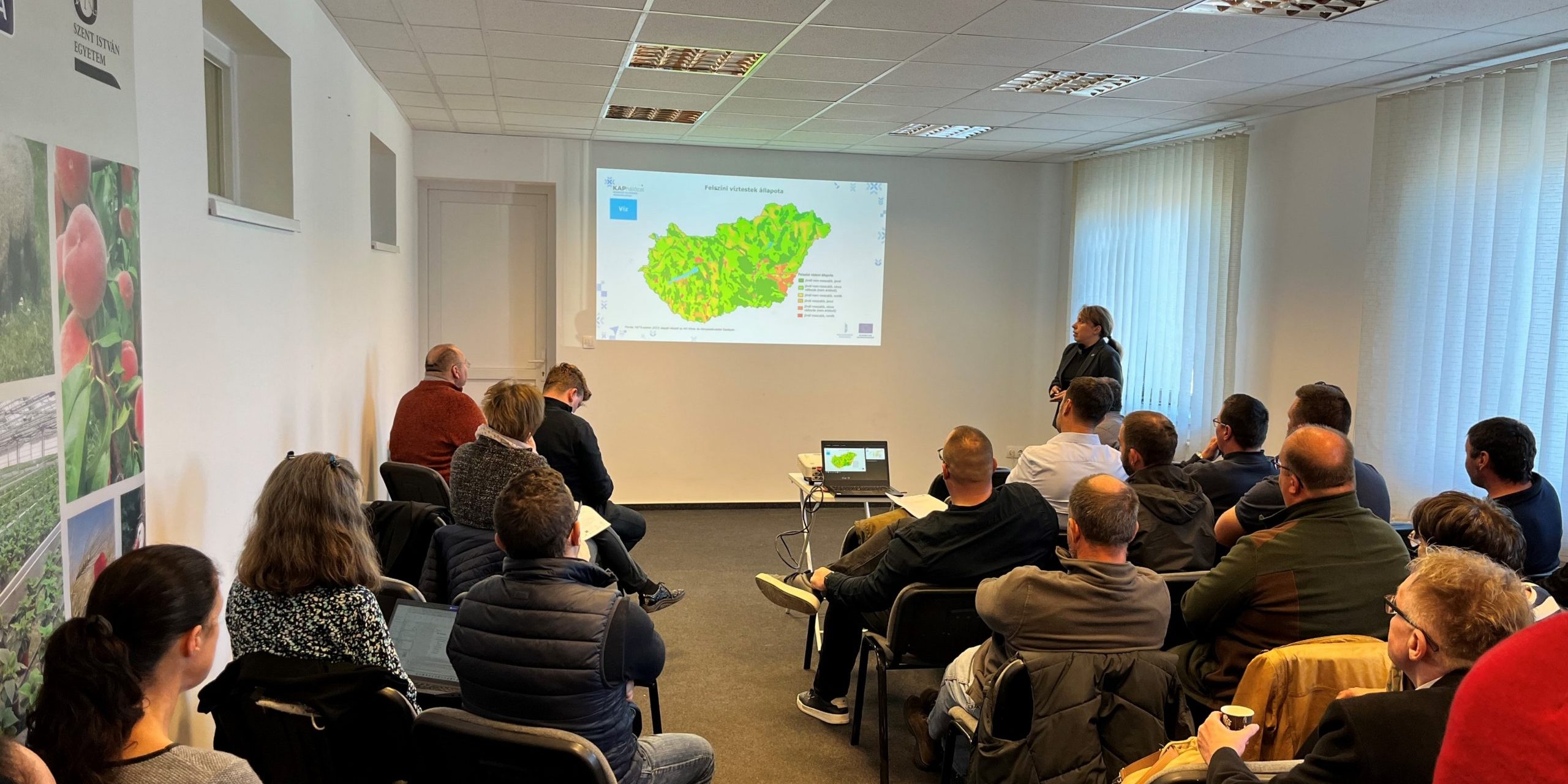The event series entitled “The Future of Farmers, the Farmers of the Future” has successfully kicked off in Kóny. The programme is jointly organised by the Hungarian Association of Young Farmers (AGRYA) and the Pannon Vidék Association, running from October 2025 to February 2027. The aim of the series is to present farmers with the latest technical and technological innovations, trends, and developments in business and regulation, all connected by the overarching theme of sustainability.
The first event took place in Kóny on 29 October 2025, with experts from the AKI Climate and Environmental Research Department participating on behalf of the Innovation and Digitalisation Support Unit.
The event opened with a presentation by Enikő Tornay, titled “Economical and Sustainable Irrigation Development”. She discussed the environmental impacts of water abstraction for irrigation and the characteristics of current irrigation development tenders.
She emphasised that efficient irrigation is not only a technological but also a strategic issue, grounded in water saving and water retention, as the future of agriculture depends on the responsible use of available water resources. She also highlighted that water-conserving soil cultivation reduces the effects of drought and increases landscape water security, while precision, demand-based irrigation ensures economical and sustainable water use.
She recommended the use of variable rate irrigation (VRI) systems and continuous monitoring, both of which improve water use efficiency.
In the second session, Csilla Óvári gave a presentation on the opportunities and challenges of carbon farming. This new approach is among the tools of the European Commission to promote the green transition of agriculture and to support progress towards climate neutrality. While the regulatory framework is still under development and several open questions remain, the significance of carbon farming is expected to grow under the Common Agricultural Policy after 2027.
To conclude the day, Márta Gaál delivered a presentation titled “The Use of Artificial Intelligence in Agriculture”. After a brief conceptual introduction, she provided practical examples demonstrating how AI-based systems—from simple chatbots to advanced image recognition, data analysis and decision-support tools—can assist farmers in their everyday work.
She emphasised that artificial intelligence can be applied across all areas of agriculture, playing a key role in improving both efficiency and sustainability, but only if sufficient and high-quality data are available.
All three presentations attracted considerable interest, as reflected by the numerous questions following the talks and the lively professional discussions during the breaks.
The next stop of the series will be Szentes, on 12 November 2025, where participants will again have the opportunity to meet and exchange ideas with experts from the Innovation and Digitalisation Support Unit.
The event program is available here, and registration can be done here.



 HU
HU



